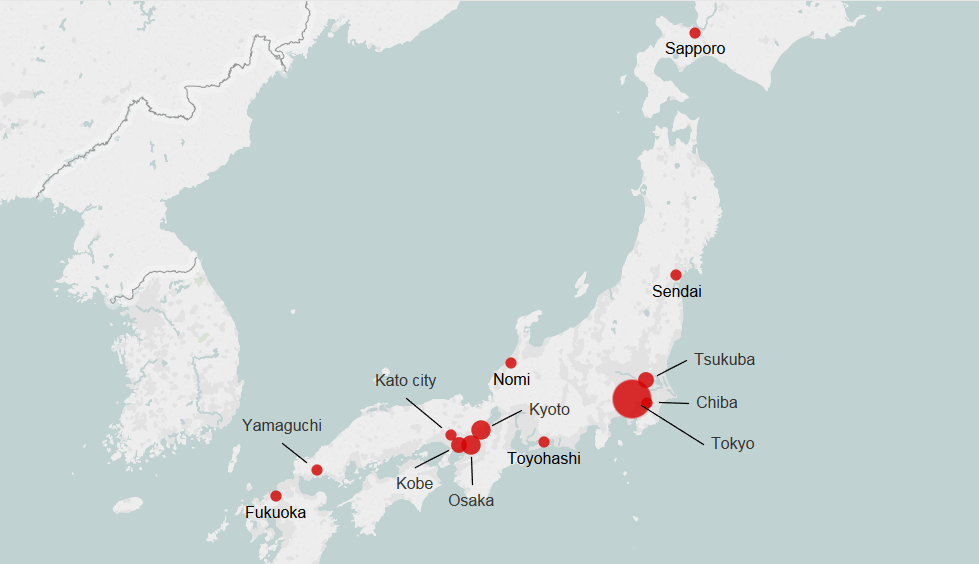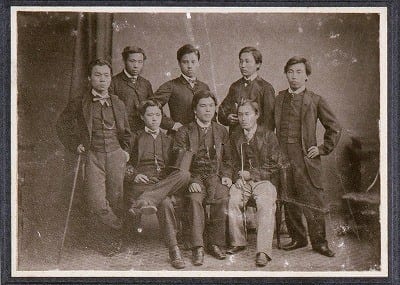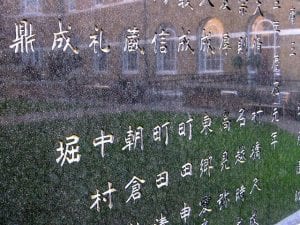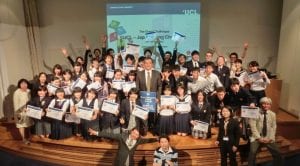UCL delegation visit Japan, こんにちは!
By uclqjle, on 19 September 2017
UCL President & Provost Professor Michael Arthur and a delegation from UCL is currently visiting Japan to strengthen collaborations there.
The relationship between UCL and Japan dates back 150 years to the Choshu Five’s arrival at UCL.
The visit, from from 25 September to 5 October, is part of UCL’s long-term commitment to build on historical links through partnerships with leading Japanese institutions and governmental bodies, research collaborations and student exchanges with top universities.
It is also an opportunity to connect with and celebrate our Japan-based alumni.
Historical Legacy
After leaving UCL, the Choshu Five went on to become the founding fathers of modern Japan.
The Choshu Five included Hirobumi Ito, who became Japan’s first Prime Minister and is otherwise known as ‘the Father of the Japanese Constitution’ and ‘the Father of parliamentary government in Japan’. The other men were Kaoru Inoue, who became Japan’s first Foreign Minister, also known as ‘the Father of modern Japanese diplomacy’, Yozo Yamao, ‘the Father of Japanese engineering’, Masaru Inoue, ‘the Father of Japanese railways’, and Kinsuke Endo, ‘the Father of the modern Japanese mint’.
Their legacy is still very much celebrated both in the UK and in Japan. In 2013, UCL took part in a high-profile celebration of the 150th anniversary of the arrival of the ‘Choshu Five’ in the UK.
The Choshu Five were followed soon after, in 1865, by a second group from Japan. This group of 19, a mix of students and supervisors, mostly came from the Satsuma region, hence their name ‘the Satsuma Group’. Members of this group went on to be successful diplomats, bring in compulsory education for all and founded Japan’s first modern factory.
To symbolise this significant history, the Japan Monument stands in the garden next to the South Cloisters at UCL. The names of the Choshu Five and the Satsuma Group are engraved on the granite monument next to a Japanese waka (poem).

Japanese Prime Minister Mr Shinzo Abe & UCL President & Provost Professor Michael Arthur at the Japan Monument during the Prime Minister’s visit to UCL in 2014.
The inscription on the side of the monument reads,
はるばるとこころつどいてはなさかる
(Harubaru to kokoro tsudoite hana sakaru)
‘When distant minds come together, cherries blossom’
Current Student Trends
Following in the footsteps of the Choshu Five and the Satsuma group, many Japanese students have studied at UCL.
UCL is the second biggest recruiter of Japanese students in the UK and the number of Japanese students welcomed every year has remained fairly consistent over the past decade. There are currently over 150 students from Japan enrolled at UCL (2016/17).
In addition to a vibrant and growing UCL Japanese Society, the UCL Japan Club – alumni group for Japan-based alumni – has established a tight and strong community to keep in touch with friends and generations of UCL alumni.
UCL also hosts the annual UCL-Japan Youth Challenge. Initiated in 2015, this is a special summer school that welcomes pre-university students from the UK and Japan to UCL. The programme consists of various intercultural learning activities and events for both students and teachers from the two countries.
Current activity between UCL & Japan
There is an exciting amount of engagement between UCL and Japan. UCL Global is currently celebrating the iconic history UCL shares with Japan, as well as highlighting a number of contemporary collaborations. To be part of this and to keep up-to-date with our activities in Japan during the visit, follow us on Twitter.
 Close
Close









